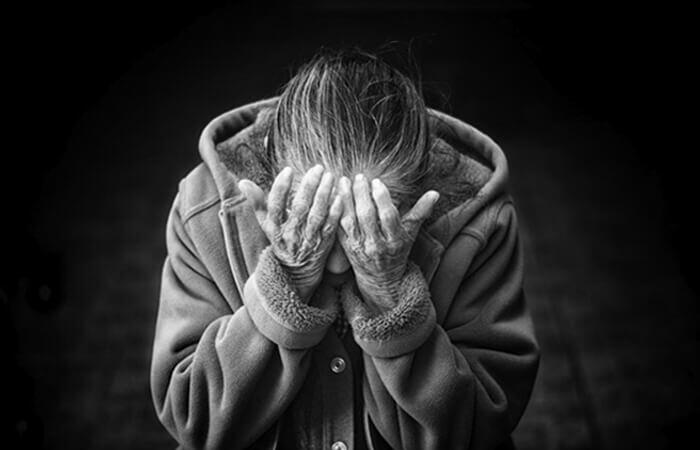How To Help An Addict In Denial

It can be tough to get an addict in denial to admit that they have a drug or alcohol use disorder and need help.
However, there are ways you can try to help them see the reality of their addiction and convince them to seek treatment.
In this blog post, we will outline some tips on how to help an addict in denial.
Remember that every situation is different, so what works for one person may not work for another. If you are struggling with a loved one who is addicted and in denial, don’t hesitate to reach out for help to achieve LA sober living.
What is Addiction Denial?
Addiction denial is when an addict refuses to accept that they have a drug abuse disorder, despite the evidence of their addiction.
They may make excuses for their behavior and deny its negative consequences on them or those around them.
It is crucial to know that drug addiction denial is not intentional; it is often a defense mechanism used by addicts to cope with the shame and guilt they feel about their alcohol or drug use.
How To Talk To Someone In Denial About Their Addiction
When talking to someone in denial of their addiction and addictive behaviors, it is essential to be patient and understanding.
Avoid being confrontational or judgmental; instead, focus on listening to what they say without trying to persuade them.
When you try to engage with them, focus on the facts of their addiction and how it impacts their life.
Make sure you emphasize that you are there to support them through this challenging time and that you want them to get help for their alcohol abuse disorder.
Suggested Read: International Day Against Drug Abuse and Illicit Trafficking
Signs of Denial
There are numerous indicators to watch out for when determining if someone is in denial about their drinking or drug use disorder.
- They may be making excuses for their behavior:
- Minimizing the severity of their addiction
- They may also show signs of defensiveness or even anger when confronted about their addiction
These are all signs that someone is in denial and may need help to recognize the reality of their addiction.
Stages of Addiction Denial
Denial is often broken down into four stages:
Pre-Contemplation
The individual does not recognize their addiction and refuses to acknowledge it exists.
Contemplation
The individual begins to realize they have a problem but still denies its severity or implications.
Preparation
The individual starts taking small steps towards getting help for their addiction.
Action
The individual actively seeks help and makes lifestyle changes to overcome addiction.
Negative Consequences of Addiction Denial
When someone is in denial about their addiction, it can lead to severe consequences and later lead to withdrawal symptoms.
They may experience physical health issues due to their substance use disorder and mental health issues such as depression, anxiety, or psychological pain.
Additionally, they may be more likely to engage in risky behaviors such as having unprotected intercourse or driving when intoxicated.
It is essential to help them recognize the reality of their addiction and get them the help they need.
If you have a loved one or anybody you know who is in denial about their substance use disorders, it is essential to be patient and understanding for emotional support.
Reasons People Who Abuse Substances Refuse Addiction Treatment
There are various reasons why someone may refuse to enter treatment for their addiction.
Some common reasons include feeling ashamed or embarrassed about their addiction, fear of what people may think, and not believing they need help.
It is essential to be understanding and supportive when trying to get someone into treatment.
Inform them that you are available and will help them in any way possible.
How To Confront An Addict In Denial
When confronting an addict in denial, it is essential to be calm and non-confrontational.
It may help start the conversation by expressing your concerns about their behavior and how it affects them and those around them.
Focus on the facts of their addiction and emphasize that you are there to support them.
Encourage them to seek help and offer to assist in any way you can.
It is important to remember that it may take time for them to come around, so be patient and understanding.
How You Can Help Someone Who Is In Denial Of Their Addiction

If you have a loved one who is in denial about their addiction, there are several ways to help them. The first step is to educate yourself about the nature of addiction and how it affects those suffering from it.
Then, encourage your loved one to seek professional help from an addiction treatment center or therapist specializing in substance abuse.
Finally, be there to provide support and understanding throughout the recovery process. Let your loved one know you are there for them and willing to help in any way possible.
Remind them that recovery is a journey that may take time, but they can overcome their addiction with patience and perseverance.
How To Get Past Denial
The best way to get past denial is with proper treatment.
This can include counseling, therapy, support groups, and inpatient rehab programs.
These treatments will help the individual gain insight into their addiction, identify triggers for substance abuse, and develop healthy coping mechanisms for managing cravings and stress. Additionally, they will benefit from their peers’ support and learn how to live a life free from addiction.
With these tools, individuals can overcome denial and finally accept the reality of their addiction.
Conclusion
Addiction denial is a common issue that can lead to severe consequences if left untreated.
It is essential to understand why people may deny their addiction and be patient when trying to get them help.
Education about addiction, professional treatment, and support are essential in helping someone overcome their denial and gain insight into the reality of their situation.
With the right help, individuals can break through the barriers of denial and take the first step toward recovery.
With patience, understanding, and support, anyone can overcome addiction denial and begin their journey to sobriety.
Suggested Read: How To Tell If Someone Is On Drugs
Sponsored Post
This is a Sponsored post. RitiRiwaz develops sponsored content with companies whose products and services we think our readers will find valuable or interesting.






